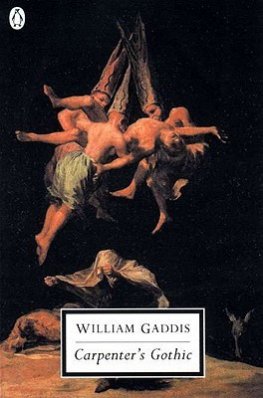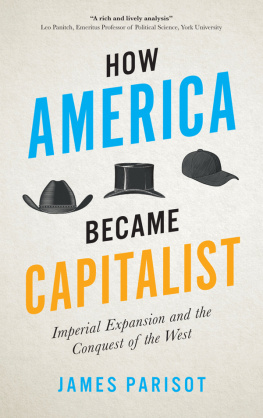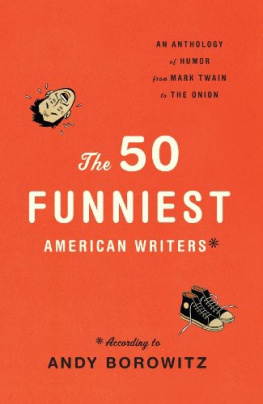J R
Other Works by William Gaddis
The Recognitions
Carpenters Gothic
A Frolic of His Own
Agap Agape
The Rush for Second Place
J R
WILLIAM
GADDIS
with an introduction by Rick Moody

J R by William Gaddis. Copyright 1971, 1974, 1975, 1979, 1993, Sarah Gaddis and Matthew Gaddis.
All rights reserved. First published in the United States of America by Alfred A. Knopf, Inc. 1975, and subsequently by Penguin Books in 1985. Portions of this book were first published in The Dutton Review, Antaeus, and Harpers magazine, June 1975 issue.
Introduction 2012 by Rick Moody
First Dalkey Archive edition, 2012
All rights reserved
Library of Congress Cataloging-in-Publication Data
Gaddis, William, 1922-1998.
JR / William Gaddis; new introduction by Rick Moody. -- 1st ed.
p. cm.
ISBN 978-1-56478-433-9 (pbk.: alk. paper)
1. Free enterprise--Fiction. I. Title.
PS3557.A28J2 2011
813.54
2011031306
Partially funded by a grant from the Illinois Arts Council, a state agency, and by the University of Illinois at Urbana-Champaign.

www.dalkeyarchive.com
Cover image: Letter from William Gaddis, copyright to The William Gaddis Estate.
Design and composition by Danielle Dutton.
Printed on permanent/durable acid-free paper and bound in the United States of America.
For Matthew
Once more unto the breach, dear friend, once more
INTRODUCTION
J R is a novel like no other novel, a singularity, a hands-down astonishment, an inferno, a Big Bang, a masterpiece. This introducer, asked to confine himself to a reasonable brevity, can in the pursuit of his introductory task do nothing but throw up his hands and assert the abovethat the novel is a novel like no other, a singularity, a Big Bang, a masterpiece. In wrestling with the sheer expanse of the thing, in fact, modalities thereof, the introducer despairs of giving the flavor of J R, of its polyphonies and musicalities, its myriad intertextualities (all of which are meticulously cross-referenced at The Gaddis Annotations, online, a resource that the man himself would probably have found admirably, if outrageously, comprehensive). The introducer can but despair here, accept defeat, and retreat in the process to the safe haven of personal experience, because, when faced with the scale of critical exegesis that swirls around Gaddis, the personal is rarer. And so: My personal experiencesit must be saiddo in fact involve episodes in which other writers warned me away from J R, owing to its occult and unjustified reputation for difficulty. J R is too difficult, too demanding, someone or some several someones reductively remarked to this introducer. Or: if one had to read a Gaddis novel, one should read The Recognitions. I did, I read The Recogntions, I devoured it, loved it in an unrestrained and slightly evangelical way, and yet in the completion ofthat reading experience, that encyclopedic reading experience, I rooted around for another challenge, J R, however, sat on the shelf for a while longer, until, in my early twenties, I elected to disregard all advice, and opened a paperback edition of J R and began. And why exactly? Because a challenge is a satisfying thing? Well, even more potently, I had consumed a Writers at Work interview with Gaddis, in which the author was asked by a Hungarian critic (I am reconstructing), a critic bent on a certain prismatic distortion of the work, What does J R stand for? To which Gaddis responded briefly, Its an abbreviation for Junior. This exchange moved me in profound and significant ways, the admirable plainness of the response, likewise Gaddis s general resistance to simplistic interpretation and influence-peddling. And this was not all that moved me. I was also moved by J R himself, as described by Gaddis in the interview and in other public settings, J R, whose pre-pubescent malfeasance, whose moral bankruptcy, is wholly charming and oddly admirable and perfectly adolescent. J R Vansant could not seem more plausible and emotionally satisfying and true these days, in this Madoff-esque present. The authors love for his creation, likewise the sense of committedness as to the scale of J R, and to making work that is resistant to easy reading and conventional expectations, all of this was enough to induce the introducer to overcome his cowardice and open the novel you have before you, only to findimmediately, instantaneously, in even the first pagesthat J R was not, in particular, difficult at all. J R was, and is, hugely, riotously entertaining. I would like to reiterate this point as it is my most legitimate idea herethe book is entertaining and not difficult at all. It is entertaining because it is hilarious in ways both high and low, because it has found a route into the rotting heart of all that is American, which is to say American capitalism; it is entertaining because it strains against realisms limitations with cunning and malice aforethought; it is entertaining because in addition to its anarchy it has a certain dystopian justice lurking in it. And whereas these themesmoney, powerlessness, and the importance of art in bad circumstanceswould turn up in later works by Gaddisin, for example, A Frolic of His Own, which mainly concerns the legal apparatuses of American lifein no other work of Gaddis is the lancet as sharp as here. I, who (like you) loves to read because I love to read (and this is life enough for me), consumed J R as if life were happening nowhere else. I consumed it, in great preoccupied fits, fifty or seventy-five pages at a clip, and I was very ecstatically happy doing so, and the dialogue, the slew of voices swept over me, the operatic mayhem of J Rs method. I was, in those weeks, in aesthetic bliss, though I had a job at which I was meant to be reading other things, manuscripts by other writers. I, the introducer, can therefore attest that if you make as to replace food, sleep, and society with J R, you can in fact be satisfied with the result, not because it is some web of intricate literary allusions that will gauze up your consciousness, but because the book is so overstuffed with invention as to be an act of great joy, even as it despairs about money and the influence ofthat evil. Yes, the action at J Rs core is by now well-known: an eleven-year-old boy with modest prospects and a challenging home life creates a gigantic stock- swindling financial empire. And around him, meanwhile, circumambulates a number of other failed personages, such as the professionals of his school, and the family of one particular music instructor, whose struggles with money serve as a foil narrative to J Rs own. And yet plot summary will do little to suggest the comic scale of J R Vansants attendant rise and fall, however, nor will it do justice to the richnesses of character in this work, much broadened and deepened in the exacting particularities of voice. If, next to God, Shakespeare created most, Gaddis runs a strong third, with especial skill in reproducing what is completely personal, particularly human, in the speech of men and women, so that the surface of J R is composed of just that, the music of individual tongues, each distinguishable (despite the legendary lack of attributions) through the syntactical habits of the person in question, except where it is
Next page











